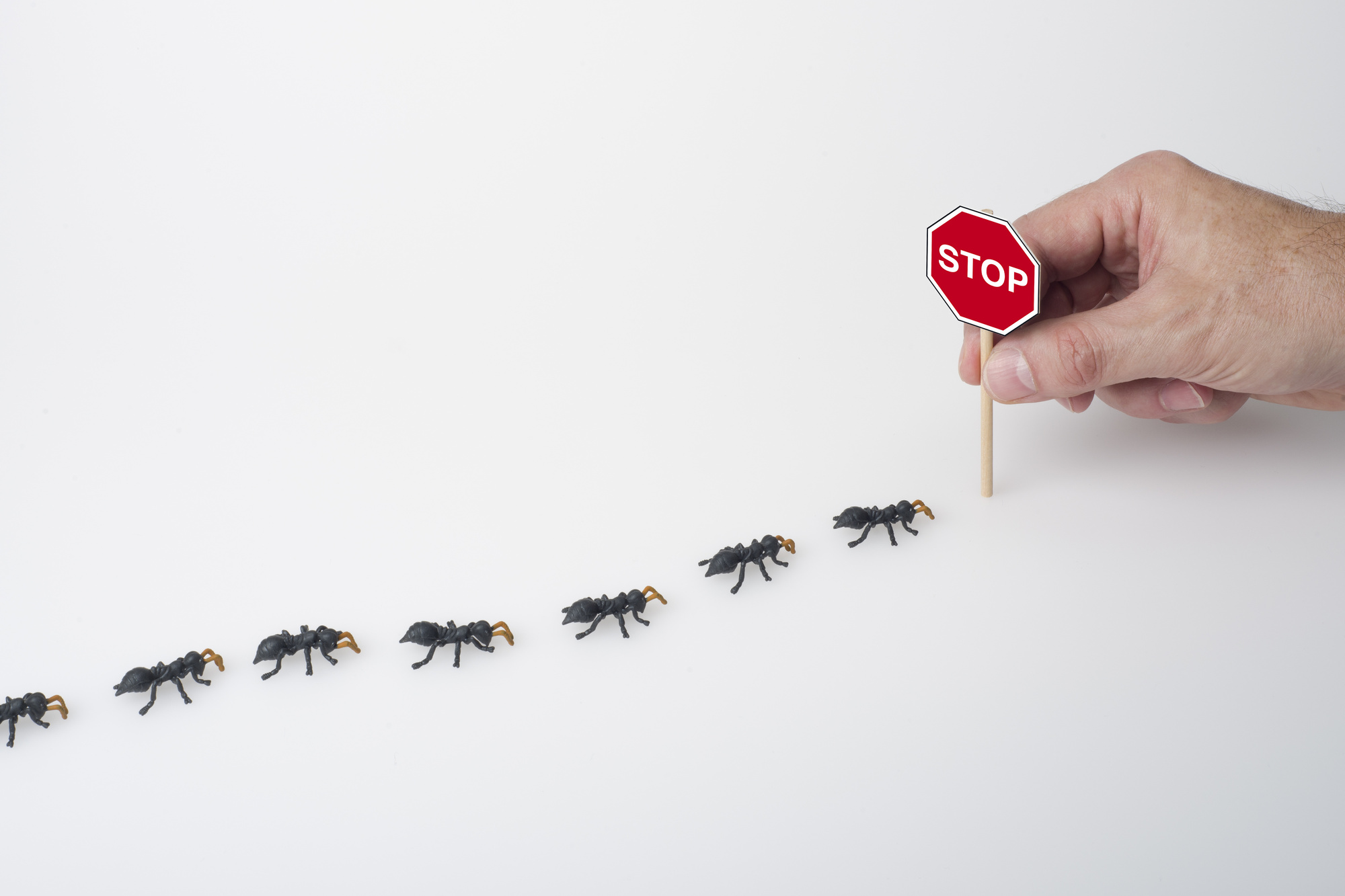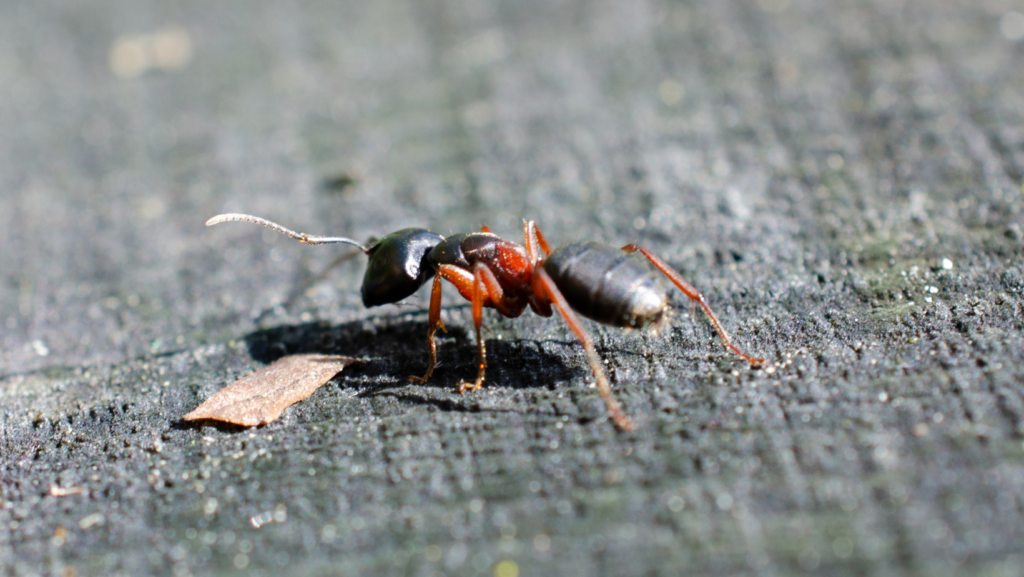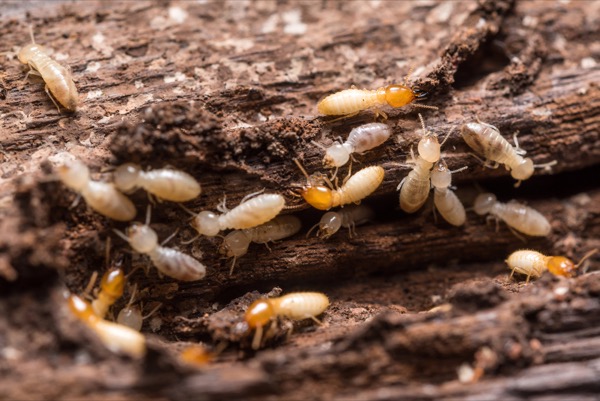Environmental Influence of Insect Control: Harmonizing Effectiveness With Sustainability
The environmental impact of bug control is a critical concern that calls for a fragile balance in between achieving efficiency in making certain and managing parasites sustainability of our ecological communities. From the usage of harmful chemicals that permeate into our dirt and water to the unplanned effects on non-target species, the repercussions of standard pest control techniques are significant.
Harmful Chemicals in Insect Control
The usage of harmful chemicals in bug control postures substantial ecological and health dangers that warrant careful consideration and reduction approaches. Herbicides, pesticides, and pesticides are commonly utilized to eradicate pests, but their extensive application can lead to unplanned consequences. These chemicals can pollute dirt, water sources, and the air, influencing not just the targeted parasites but also beneficial insects, wild animals, and people.

To address these risks, incorporated pest monitoring (IPM) methods are being promoted as a more lasting option. IPM includes a combination of techniques such as organic control, habitat manipulation, and the targeted usage of pesticides as a last resort (ant control hendersonville nc). By taking on a holistic approach to pest control, we can decrease the ecological and health impacts associated with hazardous chemicals while successfully managing pest populations
Effect On Non-Target Types
Considering the unexpected effects of parasite control techniques, the influence on non-target species is an essential facet that needs detailed assessment. While pest control actions aim to target certain bugs, various other microorganisms in the environment may be unintentionally affected. Non-target species, consisting of valuable pests, birds, creatures, and also plants, can suffer indirect or straight damage from chemical applications or organic control techniques.
Insecticides developed to fight a specific bug bug might harm pollinators like bees or natural killers such as ladybugs. Biological control agents, if not species-specific, can position dangers to unexpected targets, interfering with the environmental balance.
To alleviate the effect on non-target species, incorporated bug monitoring (IPM) strategies that stress an alternative technique to pest control are suggested. These techniques focus on the use of ecologically friendly methods, lessening injury to helpful organisms while effectively handling pest populations. Performing complete danger evaluations and checking the results of insect control efforts are crucial actions in protecting non-target varieties and promoting overall environment wellness.
Soil and Water Contamination
Unintentional ecological consequences of parasite control techniques prolong beyond impacting non-target types, with substantial effects for soil and water contamination. Chemicals, herbicides, and chemical fertilizers utilized in insect control can leach into the dirt and pollute groundwater, posturing a threat to both earthbound and marine ecosystems. Dirt contamination can disrupt the equilibrium of microorganisms vital for nutrition biking and plant growth, causing decreased dirt fertility and efficiency. These chemicals can continue in the atmosphere for extensive periods, collecting in the dirt and possibly getting in the food chain.
Water contamination is one more essential issue related to bug control techniques. Overflow from agricultural areas treated with chemicals can carry these chemicals right into close-by water bodies, impacting water organisms and water top quality. Impurities in water sources can have far-ranging effects, affecting not just water life but additionally human health and wellness with the intake of infected water or aquatic organisms. To minimize dirt and water contamination from parasite control activities, integrated pest administration techniques that focus on sustainability and minimize chemical inputs are crucial.
Air Air Pollution From Chemical Use
Direct exposure to airborne chemicals during agricultural applications presents a significant issue for air contamination control actions. Furthermore, pesticide drift, where pesticides are lugged by the wind to unintentional locations, can lead to the contamination of close-by ecosystems and water bodies.

Strategies for Lasting Insect Control
In the world of farming methods, executing sustainable bug control strategies is paramount for preserving eco-friendly balance and securing plant yields. Sustainable parasite control stresses using ecologically pleasant approaches to manage insect populaces successfully while minimizing harm to non-target microorganisms and environments. Integrated Parasite Monitoring (IPM) is a commonly adopted method that combines biological, cultural, physical, and chemical control approaches to accomplish lasting pest administration options.
One key approach in lasting parasite control is promoting biodiversity within agroecosystems. By improving all-natural adversaries of parasites, such as parasitoids and predators, farmers can minimize the need for artificial pesticides. Crop turning and diversification are also reliable methods to interfere with pest life process and produce less beneficial conditions for insects to flourish. In addition, making use of pest-resistant plant selections and employing methods like catch cropping can help lower insect pressure without counting greatly on chemical treatments. Eventually, by integrating these lasting parasite control strategies, farmers can achieve a balance between pest administration efficiency and environmental stewardship.
Final Thought
In verdict, the ecological influence of insect control methods have to be carefully considered to balance performance with sustainability. Harmful chemicals utilized in insect control can cause soil and water contamination, air contamination, and injury non-target types - ant control services. It is essential to carry out lasting bug control approaches to minimize these unfavorable impacts on the setting and advertise a healthier environment for future generations
By taking on an alternative technique to pest control, we can minimize the ecological and health impacts linked with harmful chemicals while effectively handling pest populations.

To alleviate the air pollution triggered by pesticide use, it is important to take on incorporated parasite monitoring approaches that focus on the usage of non-chemical bug control approaches, such as plant rotation, natural predators, and immune crop varieties. Sustainable insect control highlights the usage of ecologically friendly approaches to take care of pest populations efficiently while minimizing damage to non-target microorganisms and ecosystems. Integrated Parasite Monitoring (IPM) is an extensively embraced method that incorporates organic, cultural, physical, and chemical control techniques to attain long-lasting bug administration services.